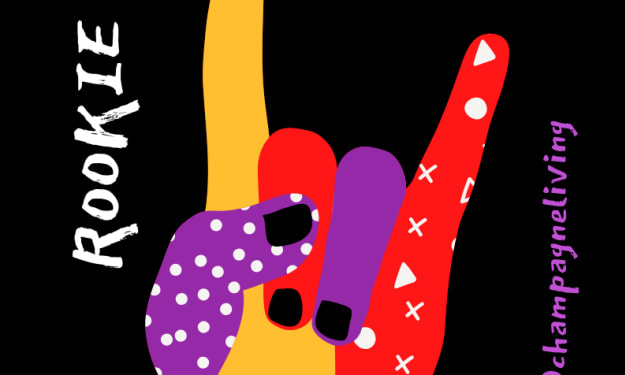
Your four-year-old is screaming for cartoons again. Your 11-year-old won't leave the Xbox and your six-year-old wants to watch YouTube—that awful gamer Channel.
Screen time is a HUGE concern for most parents. Letting your kids watch "too much" TV or play too many video games could ruin their lives. Any minute they could change from your lovable child into one who never sleeps because they only play video games.
What can we do? Strict limits or lying that the TV is broken?
Lying is never a good example for our kids. And strict limits are control that we want to avoid in gentle parenting.
There is a lot of information out there about screen time and how awful it is. And there is some truth in that information, our attention is easily hijacked, it’s a human condition more than one linked to screens. Screens are so new, adults are still learning how to manage their use and the distractions inherent with screens. No wonder we worry that kids are using them too much.
Screen time studies are flawed. Screen time is lumped into one big category, there is no differentiation between types of screens: computer vs TV vs mobile devices. There’s no differentiation on what kids are using screens for. Many kids watching YouTube are engaged with peers who have the same interests as them. Many children using social media are interacting with one another, rapid fire text messages. There is some evidence that texting and emojis are becoming their own language.
One popular myth is that social media and screen time has reduced people’s attention span. This is 100% untrue, attention span and focus is task dependent. When I’m cooking my attention span jumps from one thing to another, but I can also sit down and read a good book for a couple hours if no one interrupts me. (Okay, I COULD do that, but I do have kids). Another myth is that screen use means we communicate less, but given the amount of time I spend messaging friends and family, it’s increased my communication. And I can find people who are interested in the same activities or events, even if I am across the globe.
Letting go of your fears around screen time is tough. The first step is always good, and that’s connecting with your kids around what they are using screen time for. Sit down and watch their favorite cartoon or YouTube show. Join them in playing a video game, or start texting them. (Teens may seem to resent this at first, but it’s a great way to communicate in THEIR medium).
Sometimes we do have to put away our screens. This can be tough even for adults. The easiest way to manage it is to use natural transitions. When it’s lunch time, the screen goes off then have a plan for the next activity, be it reading books, going out for fresh air, or playing with a favorite toy. Invite your teenager out with you, don’t shame them if they don’t agree. Keep asking, find out what they would like to do and when.
Many parents report their kids, especially young kids, having an emotional outburst around screen time. EIther wanting it, or not wanting to stop. Screen time or not, young kids experience frequent emotional upset. We often relate it to screen time, because we want to assume control and lessen upset. I totally understand. The answer for meltdowns, whatever the reason, is not strict control over screen time, the fix is empathy and connection and solution seeking, all of which you can read about in the units.
When we let go of control, kids will often binge on the previously forbidden fruit. Take some time to examine your fears. Is it true that your child is a zombie or do they sometimes, even for just a few minutes, show interest in non-screen time activities? Take time to connect with screens and without. Seek collaborative solutions with them to solve common issues. Even with young kids, we can use techniques like soliciting good intentions to help avoid upset. Once kids aren’t being restricted from screens, they can often let go easier, as they trust there will be more time with them later.
Parent: I will give you time to watch TV, but when it’s time for supper/bed can I count on you to be okay with turning off the TV?
Child: Okay.
When it’s time to turn off the TV.
Parent: Remember when we agreed we’d watch TV until this time and then we’d turn it off? It’s time. Let’s turn it off and we can read books (or set the table together or whatever comes with the next activity). Tell me about what you watched on TV.
Our desire to limit screen time is rooted in our desire to control. It tells our kids we don’t value their freedom to explore what is meaningful to them. If we truly want to give our kids freedom to explore, that includes allowing them screen time.
“They aren’t doing anything but sitting there”
Kids spend a lot of time sitting. In school, while they are reading. We don’t seek to limit those things, but we do seek to limit when our child CHOOSES something. And not just anything, a tool in our modern society that holds great importance with their future. In almost any job, even fast food, knowing how to navigate a computer is an important skill.
I will add some links at the end that show the benefits of screen and that research on screen time is imperfect and misguided. Hopefully in the future, researchers will do better research and give us guidelines that are built on better evidence than we are currently working from.
Our goal in gentle parenting is collaborate and connect with our kids, not control. This includes screen time. There’s a lot of hype around the fear of screen time, but we can use it as a way to connect and give kids freedom to choose their own interests.
Some links:
Screen time guidelines need to built on evidence not hype
The benefits of kids and video games
Panicking About Your Kids’ Phones? New Research Says Don’t
Why y ou should give your kids unlimited screen time
Sense and Nonsense about screen time "addiction"





Comments
There are no comments for this story
Be the first to respond and start the conversation.